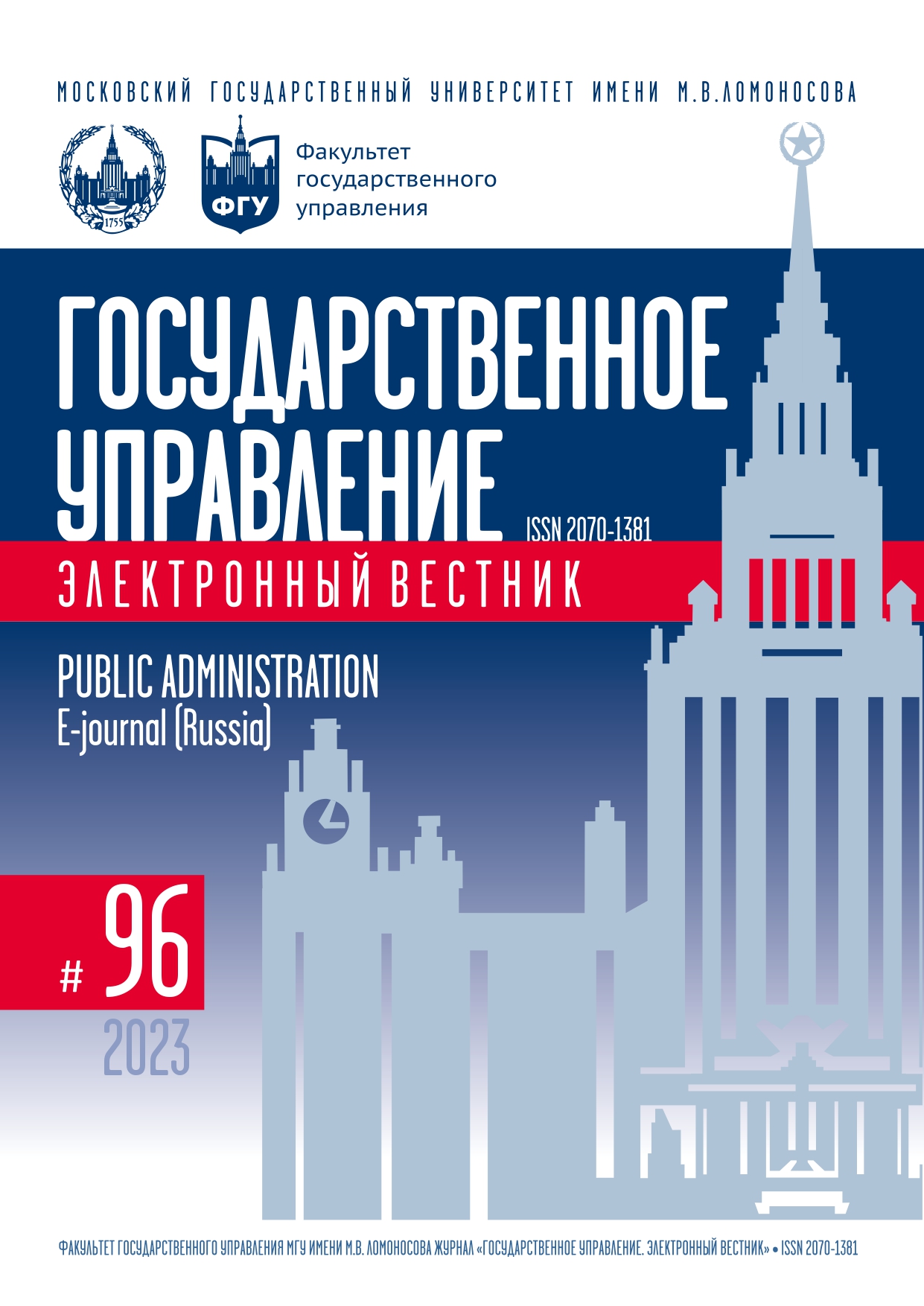State Support System for Russian Mass Media Activities to Promote Their Products to Foreign Information Markets in the Context of Information Wars
Keywords:
Mass media, foreign information market, information war, state support system, prohibitive measures, administrative measuresAbstract
In this paper, based on the analysis of current sources, including materials of the largest Russian mass media, the analysis of the state system of support for the activities of Russian mass media to promote their products to foreign information markets in the context of information wars is carried out. It is noted that the information war against the Russian media abroad has now reached a new level. It is established that the modern state system of support for the activities of Russian media to promote their products to foreign information markets in the context of information wars can be divided into two types: prohibitive measures against foreign media and administrative measures to stimulate Russian media working in the foreign information market. As a result of the conducted research, it is shown that at present in comparison with previous years the influence of prohibitive measures against foreign media has increased to support the activities of Russian media to promote their products to foreign information markets. The development of administrative measures to stimulate Russian media working in the foreign information market is also continuing. New forms and methods are proposed, which in the future should make it possible to promote their products more successfully on the foreign information market. Taking into account the conducted research, proposals have been made to further improve the system of support for the activities of Russian mass media to promote their products to foreign information markets. According to the authors, the combined application of the proposed measures will allow the Russian media in the future to enter new foreign information markets in the context of information wars and gain a foothold in the markets in which they are already present.
References
Алексеев Г.В. Безопасность в системе государственного регулирования распространения массовой информации // Управленческое консультирование. 2017. № 7. С. 8–19. DOI: 10.22394/1726-1139-2017-7-8-19
Ахмадеев К.Н., Бреслер М.Г., Манойло А.В. Эффективность fake news как инструмента информационной войны в восприятии поколения Z // Вестник Московского государственного областного университета. 2021. № 3. С. 8–32. DOI: 10.18384/2224-0209-2021-3-1084
Ковшарь М. Эффективность информационного сопровождения Россией своей внешнеполитической деятельности в условиях противоборства с США // Международная жизнь. 2019. № 8. С. 50–59.
Колеватова Т.С. Современные средства информации в публичной дипломатии России // Власть. 2016. Т. 24. № 1. С. 51–56.
Манойло А.В. Информационная война и новая политическая реальность (II) // Вестник Московского государственного областного университета. 2021. № 2. С. 110–148. DOI: 10.18384/2224-0209-2021-2-1075
Мусиева Д.М. «Гибридная война» коллективного Запада против России // Информационные войны. 2022. № 2(62). С 29–35.
Прохоров Е.П. Обеспечение информационной безопасности в деятельности СМИ. М.: Факультет журналистики МГУ имени М.В. Ломоносова, 2009.
Стровский Д.Л., Ильина О.В. Предисловие // СМИ в условиях информационной глобализации: Материалы Международной научно-практической конференции. Екатеринбург: Урал. фед. ун-т., 2013. С. 6–8.
Таказов В.Д., Загоскина К.С. СМИ как инструмент продвижения политики «мягкой силы» // Вестник ВГУ. Серия: Филология. Журналистика. 2022. № 3. С. 148–151.
Толоконникова А.В., Будакова Д.О. Роль телеканала RT в формировании международного имиджа России // Вестник Московского университета. Серия 10. Журналистика. 2019. № 5. С. 89–119. DOI: 10.30547/vestnik.journ.5.2019.89119
Харитонова Н.И., Максимов А.С. Взаимодействие России с ключевыми геополитическими оппонентами в условиях гибридной войны: комплексный стратегический подход // Государственное управление. Электронный вестник. 2022. № 95. С. 108–123.
DOI: 10.24412/2070-1381-2022-95-108-123
Crilley R., Gillespie M., Kazakov V., Willis A. ‘Russia isn’t a Country of Putins!’: How RT Bridged the Credibility Gap in Russian Public Diplomacy during The 2018 FIFA World Cup // The British Journal of Politics and International Relations. 2022a. Vol. 24. Is. 1. P. 136–152.
DOI: 10.1177/13691481211013713
Elswah M., Howard P.N. «Anything that Causes Chaos»: The Organizational Behavior of Russia Today (RT) // Journal of Communication. 2020. Vol. 70. Is. 5. P. 623–645. DOI: 10.1093/joc/jqaa027
Crilley R., Gillespie M., Vidgen B., Willis A. Understanding RT’s Audiences: Exposure Not Endorsement for Twitter Followers of Russian State-Sponsored Media // The International Journal of Press/Politics. 2022b. Vol. 27. Is. 1. P. 220–242. DOI: 10.1177/1940161220980692

